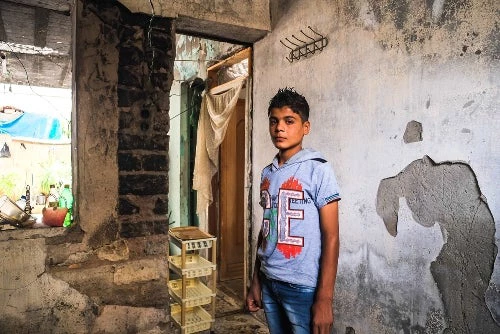This blog was originally published on Future Development.
Even before the conflict, Syria’s private land administration was not particularly effective. According to rough prewar estimates by the Ministry of Local Government, only about 50 % of land in Syria was officially registered . Another 40 percent had boundaries demarcated but had not yet been registered. The multiple land registries were paper-based and often not properly stored. Plans for automation and simplification of registration procedures were interrupted by the conflict.
Popular practices at times undermined the accuracy of the land registries and weakened the security of land tenure. Land passed through inheritance was not always subdivided among heirs and registered accordingly. Married couples did not routinely register land titles jointly, denying many married women the advantages of joint ownership. Informal tenure arrangements—mostly community-type arrangements in rural areas—functioned in parallel to the formal system. Government programs involving expropriation of private land for housing and security purposes were not necessarily fair, particularly in terms of compensation, creating a group of aggrieved former owners.
Security of land tenure has been further weakened by the conflict . Paper land registries have reportedly been damaged or destroyed . Falsification of land documents, leading to fraudulent land transactions, is allegedly common in areas of fighting. Refugees and displaced persons, particularly those in female-headed households, may have difficulty providing evidence to support ownership or other land tenure rights. And there are increasing rumors that the homes and land of displaced persons are being used to resettle local or foreign fighters.
The recent changes to the legal framework are affecting land tenure security of the displaced in the following ways. First, security clearance is now required for all transactions in private land in Syria . Regime security services must approve sales and purchases of land through the Ministry of Interior. Many displaced persons would be unwilling to seek permission from the Ministry of Interior to conduct land transactions for fear of identifying themselves as displaced, which may lead to them being labeled as anti-regime. And government forces are alleged to be involved in the confiscation of property belonging to the displaced.
Second, the Ministry of Local Development has the power to suspend private land transactions in conflict-affected areas. In such instances, the official land registry would be frozen and new transactions would instead be registered in a supplemental daily record of transactions. This means recording in institutions inside government-controlled territory any transactions in private land located outside of government control. It remains unclear what legal and procedural protections would be afforded displaced land owners. Anyone objecting to the authenticity of an entry in the record would need to file an appeal in a local court, again presumably in government-controlled territory.
There is a legitimate state interest in suspending land transactions in areas of conflict , for example, to prevent transactions conducted through fraud or duress. Similar action was taken by the Colombian government to protect the land of its displaced. However, in the Syrian, context suspending such transactions also opens the possibility for manipulation of land records to the detriment of displaced persons viewed as supporters of opposition forces, with the displaced having little practical recourse to challenge the results.
Third, full legal validity is being extended beyond the paper-based land registries to include digitized copies. Digitizing paper land records could be an effective protection against damage or destruction. Providing a digital backup of the paper registries can protect against loss of land records and provide evidence of land rights in a post-conflict setting. But the current paper registries are not completely accurate.
Again, this raises the question as to how the land tenure rights of displaced persons would be handled in the process. Anyone wishing to challenge the accuracy of the new digital record would need to do so at a local court where the records are held within a period of roughly five years, which may not be possible or practical for displaced persons. Digitization of inaccurate paper land records further puts rights at risk and would complicate any post-conflict land restitution process.
Together these measures and the obstacles they create could form a basis for de facto expropriation of land of displaced persons through de jure means. One need only look at Bosnia and Croatia, where conflict-era legislation on property was used to disenfranchise the displaced in an attempt to cement ethnic/confessional displacement and resettlement.
Having been the property law coordinator at the Office of the High Representative in Sarajevo for several years after the signing of the Dayton Peace Agreement, I can personally attest to the difficulties of untangling the knot of land tenure in the post-conflict setting—as well as its importance, given the links to physical return of refugees and the internally displaced and the social and economic consequences of access to land and housing.


Join the Conversation